 by our College Data Analytics Team
by our College Data Analytics TeamPensacola State total enrollment is approximately 9,226 students.
Male/Female Breakdown of Undergraduates
The full-time Pensacola State undergraduate population is made up of 63% women, and 37% men.
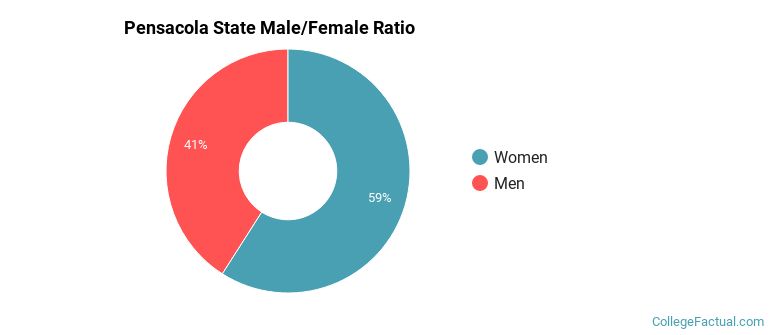
For the gender breakdown for all students, go here.
Pensacola State Racial/Ethnic Breakdown of Undergraduates
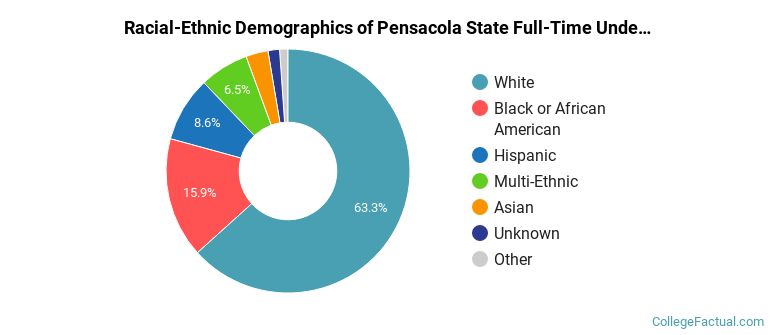
| Race/Ethnicity | Number |
|---|---|
| White | 2,250 |
| Black or African American | 501 |
| Hispanic | 317 |
| Multi-Ethnic | 271 |
| Asian | 79 |
| International | 72 |
| Native Hawaiian or Pacific Islander | 15 |
| Unknown | 7 |
See racial/ethnic breakdown for all students.
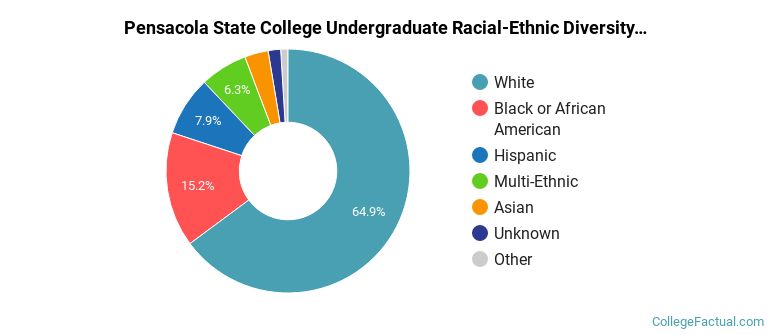
| Race/Ethnicity | Number |
|---|---|
| White | 5,951 |
| Black or African American | 1,363 |
| Hispanic | 717 |
| Multi-Ethnic | 641 |
| Asian | 217 |
| International | 185 |
| Unknown | 55 |
| Native Hawaiian or Pacific Islander | 36 |
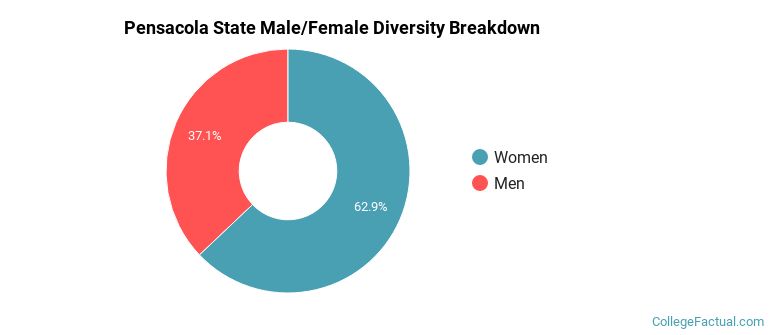
There are approximately 5,976 female students and 3,250 male students at Pensacola State.
Pensacola State ranks 1,500 out of 2,183 when it comes to geographic diversity.
4.38% of Pensacola State students come from out of state, and 0% come from out of the country.
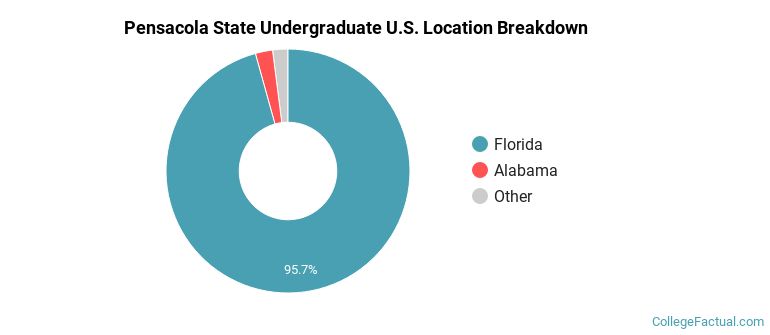
The undergraduate student body is split among 18 states (may include Washington D.C.). Click on the map for more detail.
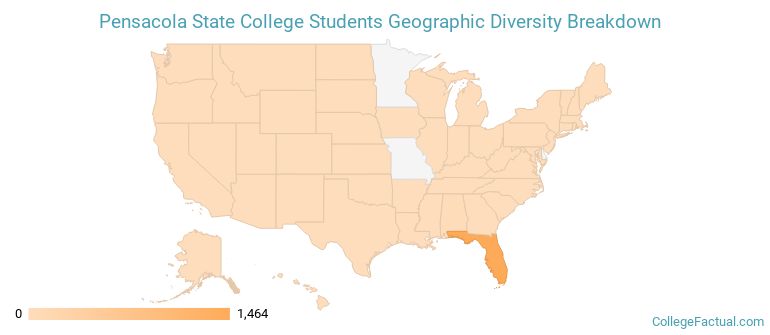
| State | Amount |
|---|---|
| Florida | 1,464 |
| Alabama | 35 |
| Georgia | 5 |
| New York | 4 |
| Texas | 4 |
Students from 20 countries are represented at this school, with the majority of the international students coming from Vietnam, Canada, and Venezuela.
Learn more about international students at Pensacola State.
A traditional college student is defined as being between the ages of 18-21. At Pensacola State, 37.22% of students fall into that category, compared to the national average of 60%.
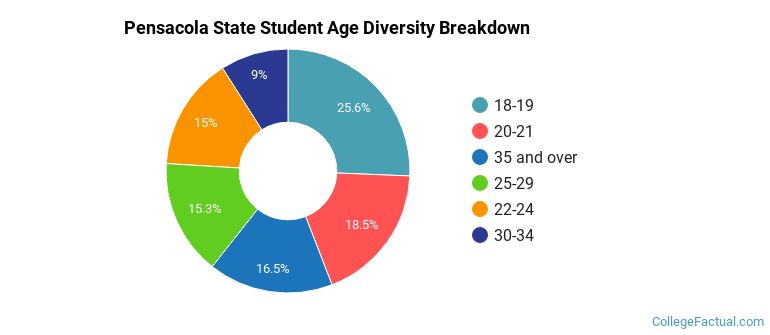
| Student Age Group | Amount |
|---|---|
| 18-19 | 2,089 |
| 20-21 | 1,505 |
| 35 and over | 1,347 |
| 25-29 | 1,247 |
| 22-24 | 1,222 |
| 30-34 | 735 |
| Under 18 | 0 |
Footnotes
*The racial-ethnic minorities count is calculated by taking the total number of students and subtracting white students, international students, and students whose race/ethnicity was unknown. This number is then divided by the total number of students at the school to obtain the racial-ethnic minorities percentage.
References
Department of Homeland Security Citizenship and Immigration Services
Read College Factual's Diversity Ranking Methodology.